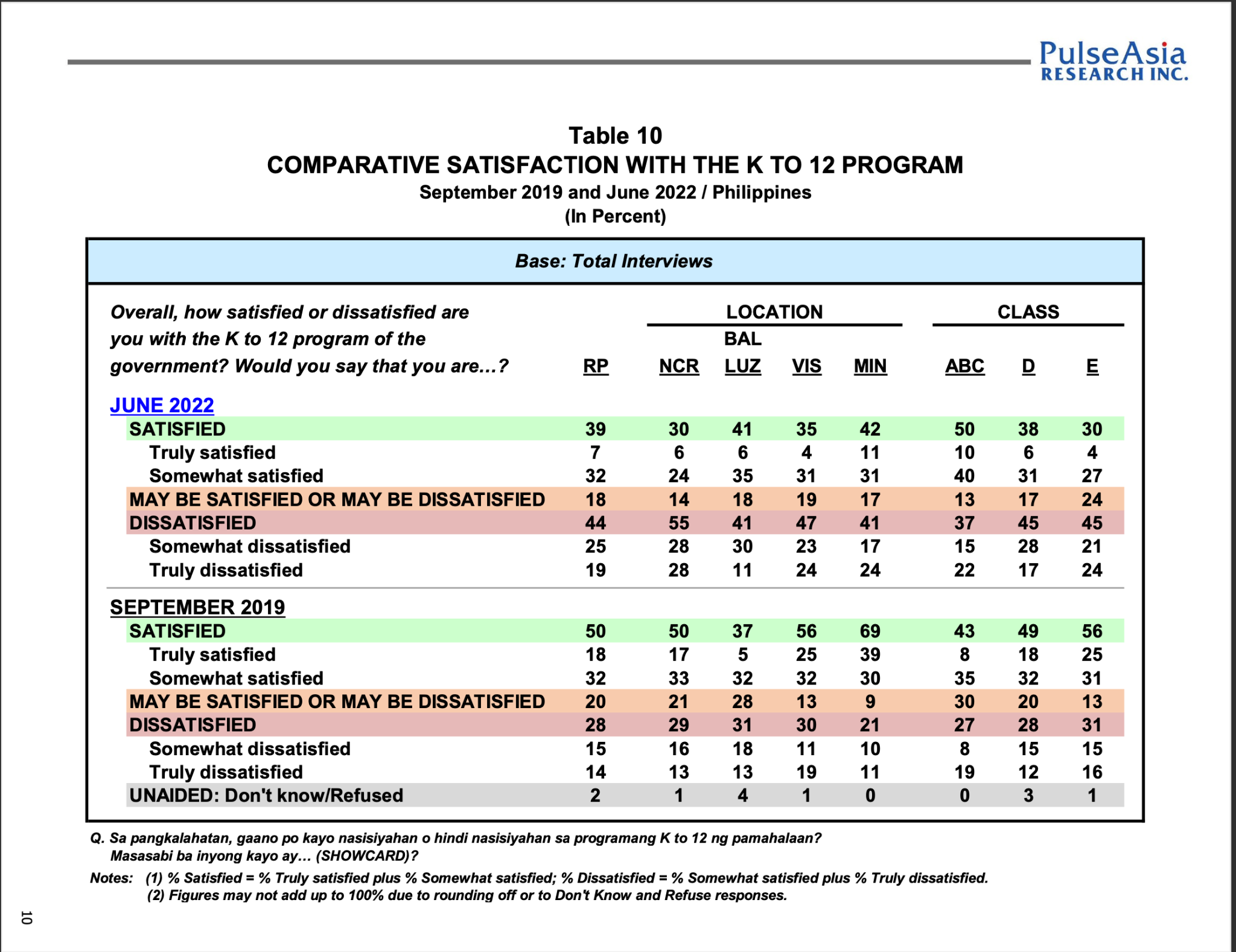Growing dissatisfaction with the K to 12 system presses the urgency of conducting a review and formulating reforms, Senator Win Gatchalian said.
A Pulse Asia survey conducted on June 24-27 with 1,200 respondents revealed that 44% of adult respondents are dissatisfied with the program. This is 16 percentage points higher compared to the results of a survey done in September 2019, which showed that only 28% of respondents were dissatisfied with the K to 12 system. The survey in June was commissioned by Gatchalian.
The June survey also saw a drop of 11 percentage points in satisfaction rate with the K to 12 program compared to a similar survey done in September 2019. While 50% of respondents in the September 2019 survey were satisfied with the program, only 39% of respondents in this year’s survey said that they are satisfied.
Gatchalian filed Proposed Senate Resolution No. 5 seeking a Senate inquiry on the status of the implementation of the Enhanced Basic Education Act of 2013 or the K to 12 Law (Republic Act No. 10533) – exactly ten years from the time the enhanced curriculum for K to 12 was initially implemented in school year 2012-2013. The proposed review is one of Gatchalian’s priority measures for the 19th Congress, and was at the centerpiece of his commitments to the Filipino voters during the senatorial campaign.
The lawmaker also commissioned a Pulse Asia survey in December 2019 which pointed out that among those who were dissatisfied with the K to 12 program, additional financial burden is the top reason for dissatisfaction (78%).
“Malinaw sa boses ng ating mga kababayan na hindi sila kuntento sa programa ng K to 12. Ito ay dahil hindi natutupad ang mga pangako nito at naging dagdag na pasanin lamang ito sa ating mga magulang at mga mag-aaral,” said Gatchalian.
A 2020 discussion paper by the Philippine Institute for Development Studies (PIDS) showed that while the K to 12 program promised to boost employability among senior high school (SHS) graduates, only a little over 20% of SHS graduates enter the labor force while 70% continue with their education.
The same discussion paper added that historically, the Filipino youth or those aged 15-24 have the lowest rates in terms of labor force participation in the ASEAN region. For example, 70% of Vietnamese youth are in the labor force but only less than 60% of their counterparts in the Philippines are in the labor force.
“Dapat nating suriin nang husto ang pagpapatupad ng K to 12 upang matiyak na natutupad nito ang layuning makapaghatid ng dekalidad na edukasyon at isulong ang pagiging competitive ng ating mga kabataan,” the Chairman of the Senate Committee on Basic Education, Arts and Culture added.



